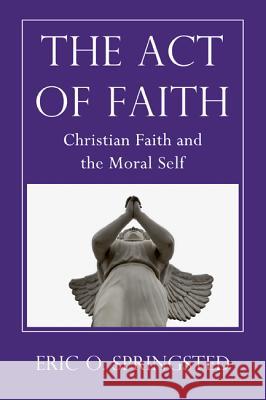The Act of Faith » książka
The Act of Faith
ISBN-13: 9781498220019 / Angielski / Miękka / 2015 / 288 str.
While the question ""Is faith reasonable?"" has continually occupied philosophers and theologians, little attention has been paid to what faith itself is. The Act of Faith remedies this neglect by looking at what it means for a person of Christian faith to believe.Eric Springsted contrasts modern views of faith with the Christian tradition running from Augustine through Aquinas and Calvin. In reviewing such thinkers as Locke and Hume, Springsted discovers that behind modern discussions of the reasonableness of faith lie key assumptions about the human self, including the views that the good is a matter of choice and that we can exercise objective, uninvolved reason. According to Springsted, however, the church has not viewed faith in this way. His survey of the Augustinian tradition shows that the self our most esteemed Christian thinkers had in mind when talking about faith was a ""moral self""--one defined by character and self-involvement. Christian faith is at root a participation in the good, and reasoning within faith is reasoning within the life of God.Drawing on contemporary philosophers and theologians like John Henry Newman and Simone Weil, Springsted builds a fresh understanding of faith for today. He shows how the ""inner act"" of faith is ultimately a radical willingness to be open to God, and he argues that the faithful self is one that develops within a community that shapes its members through the morally formative activities of interaction, teaching, and sacramental practice.""The Act of Faith is a book characterized by the arresting range and quality of its argument. . . . Springsted provides a mature inquiry into epistemological and metaphysical questions, writing with an enviable clarity of expression. His book should prove accessible to a relatively wide audience of intelligent believers, and it may also illuminate those chary of the inner resources of faith commitment.""--David Burrell, C.S.C, University of Notre Dame""We have suffered too long from theological amnesia. Eric Springsted helps us recover the treasures of the past for our use today in seeking to be faithful. A masterful and profound study.""--Diogenes Allen, Princeton Theological SeminaryEric O. Springsted has taught at Illinois College and Princeton Theological Seminary. He is an independent scholar and lecturer in philosophy











